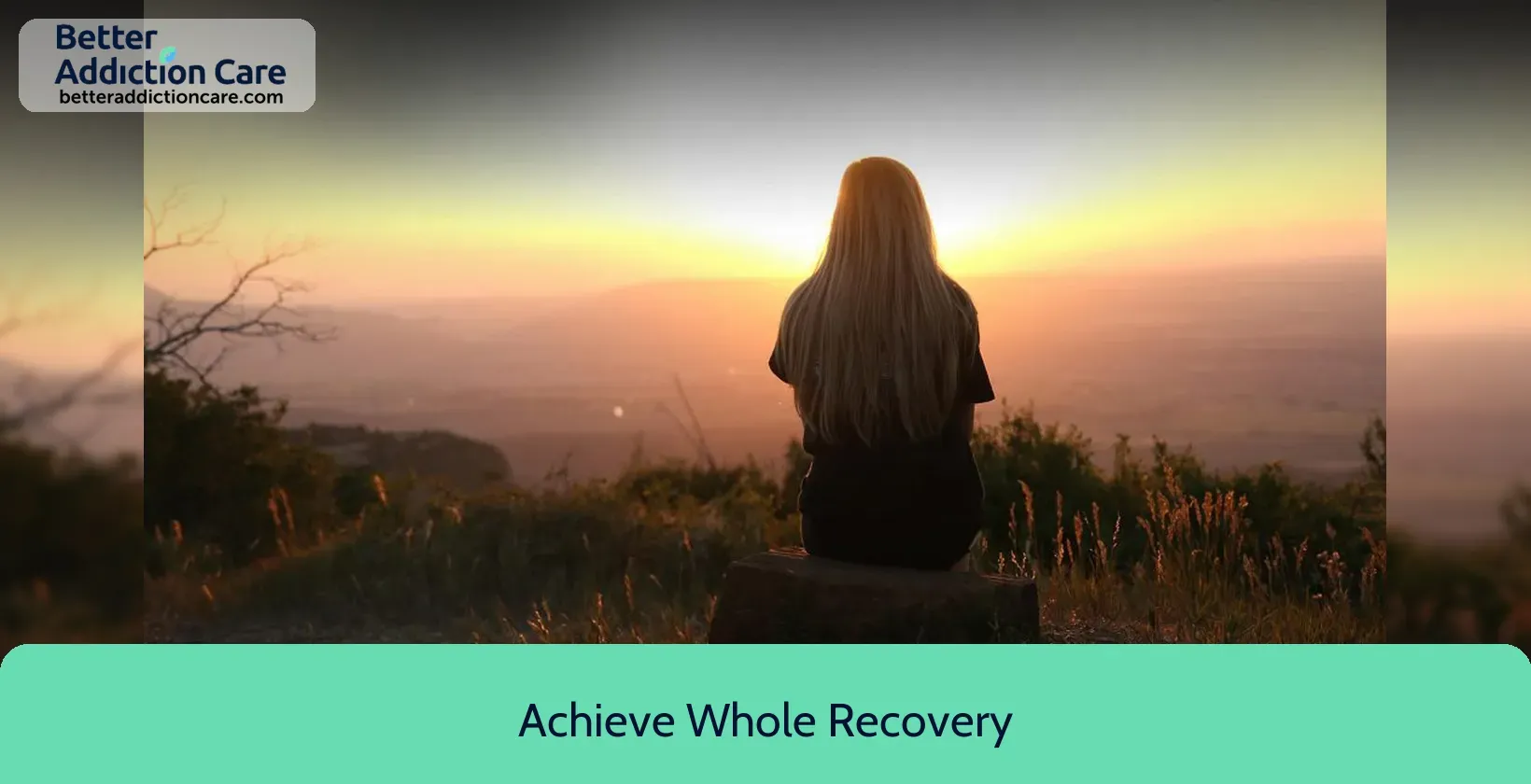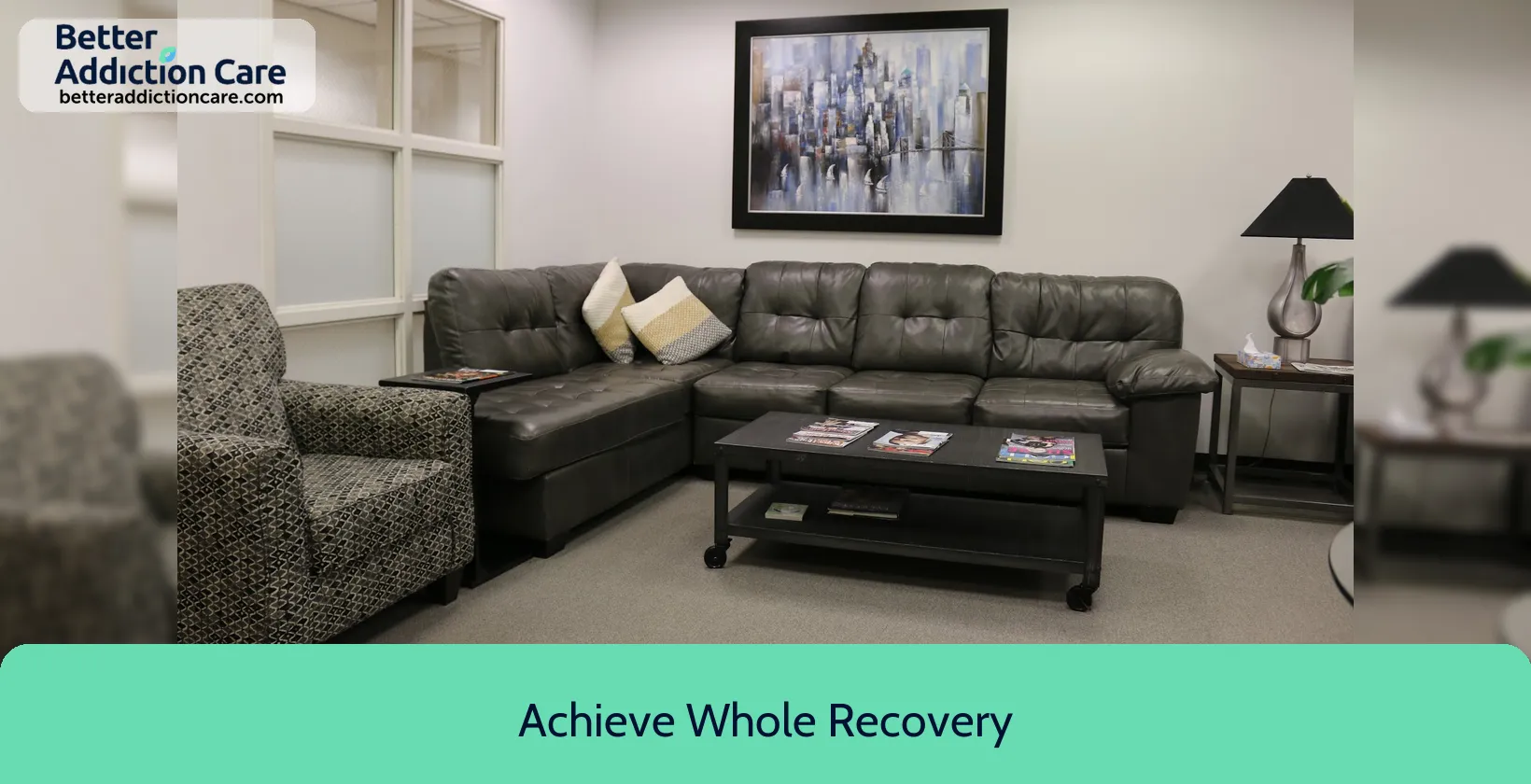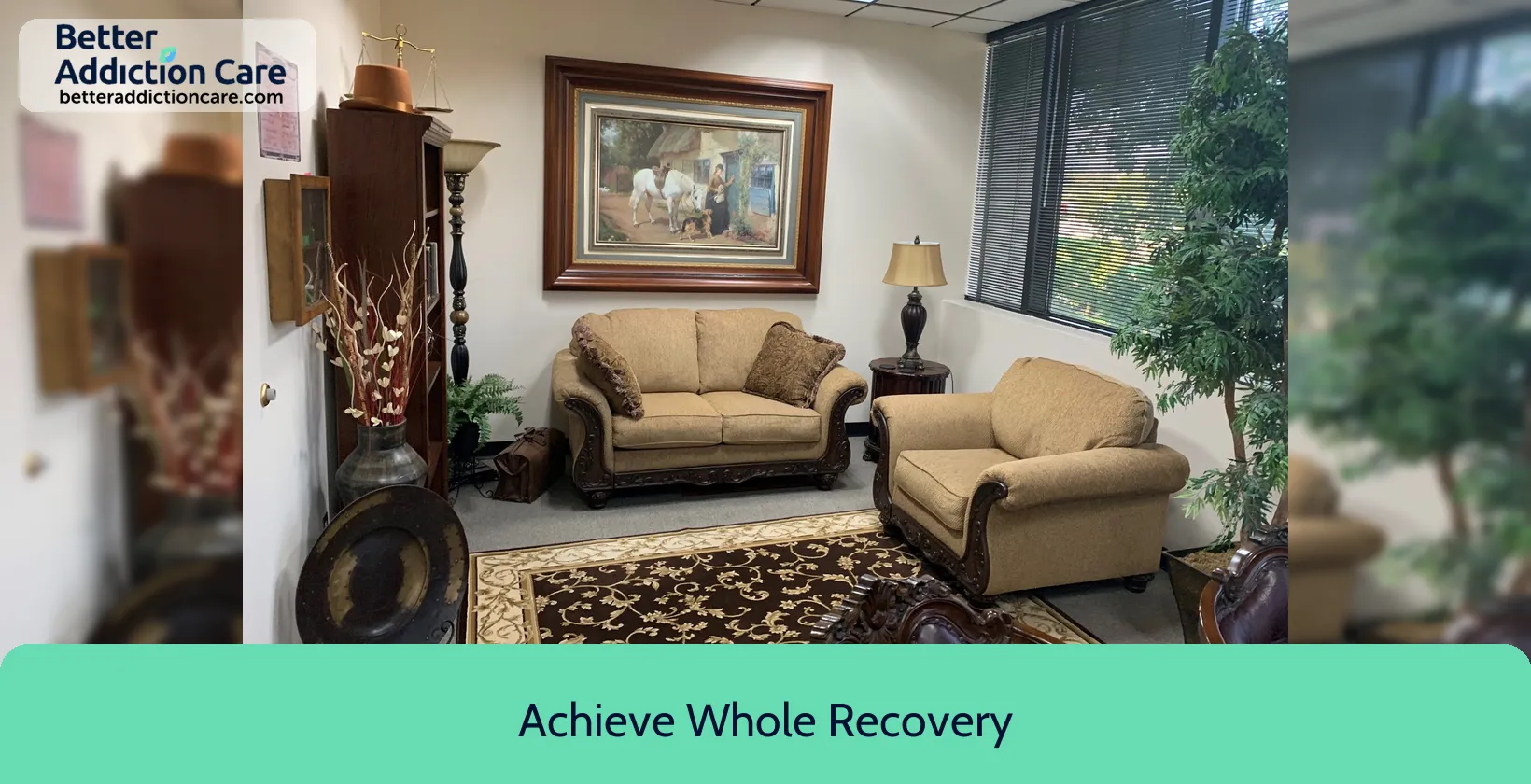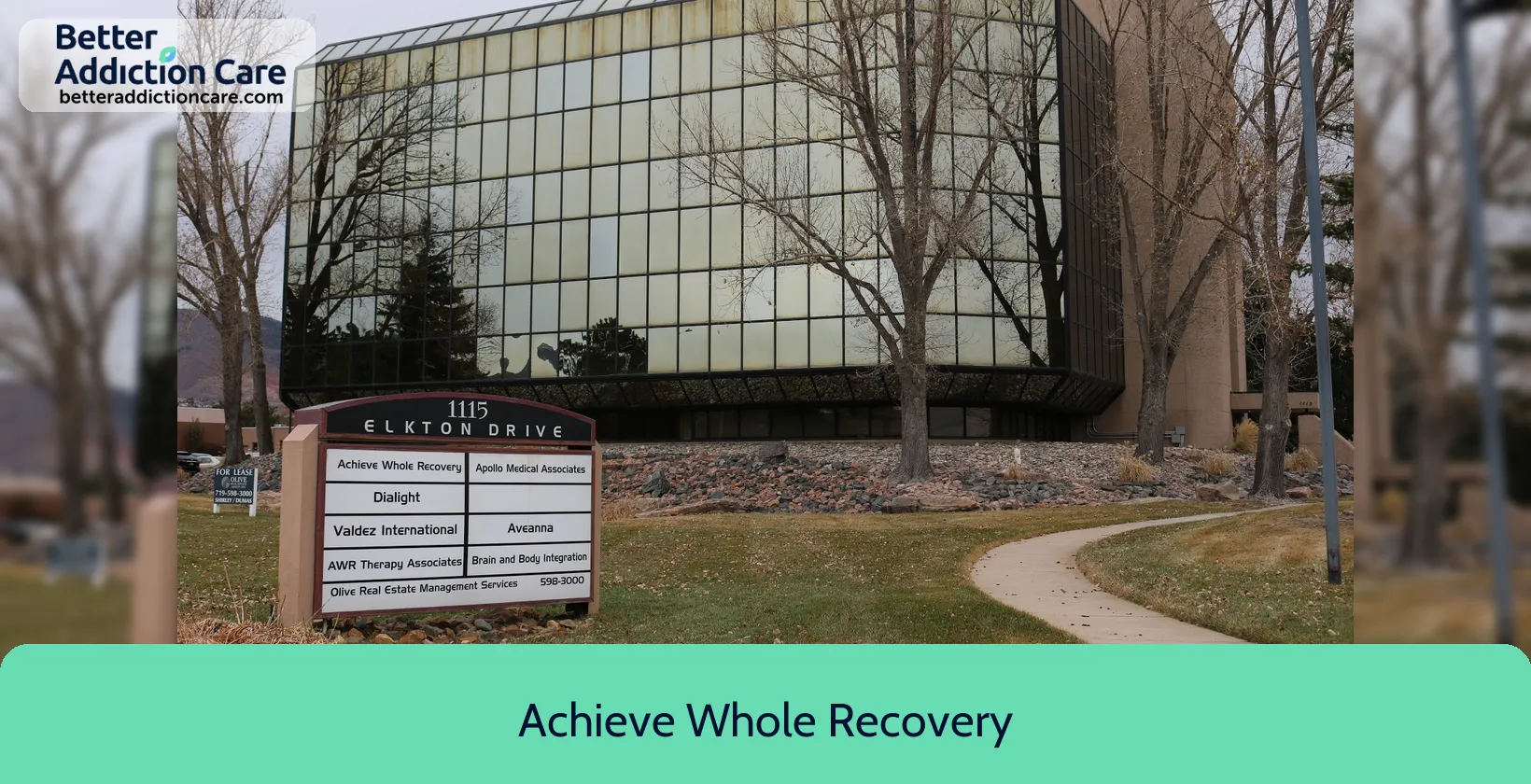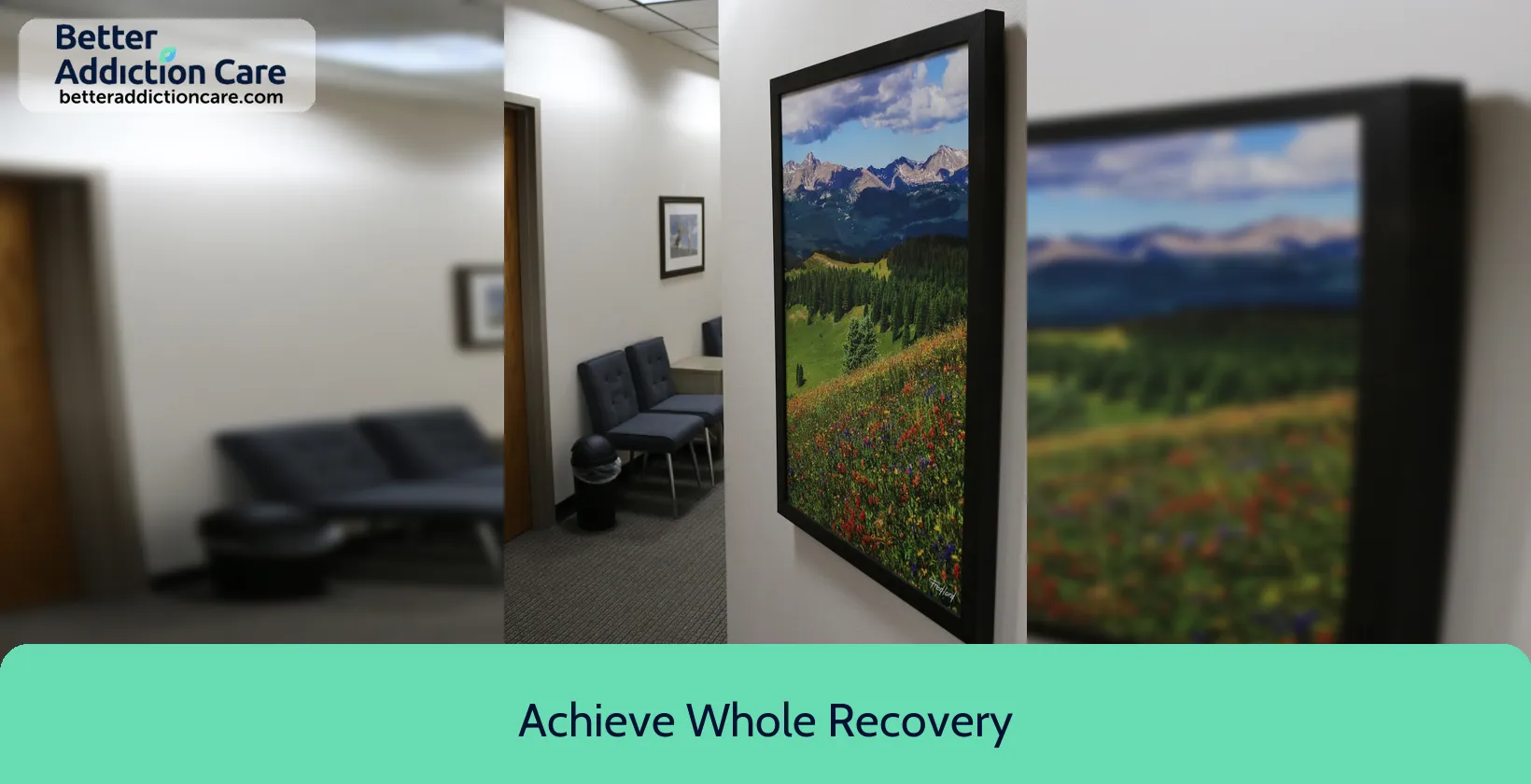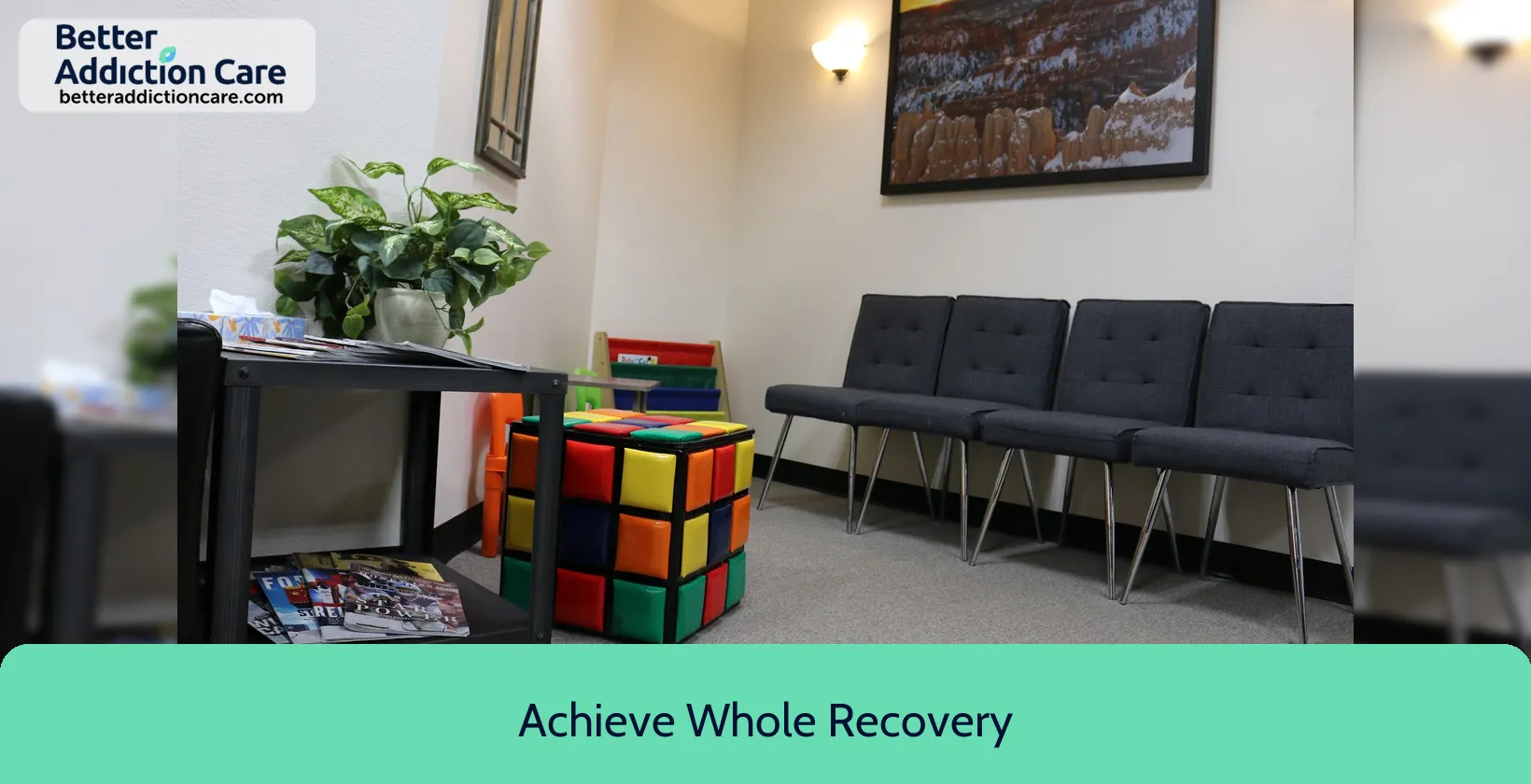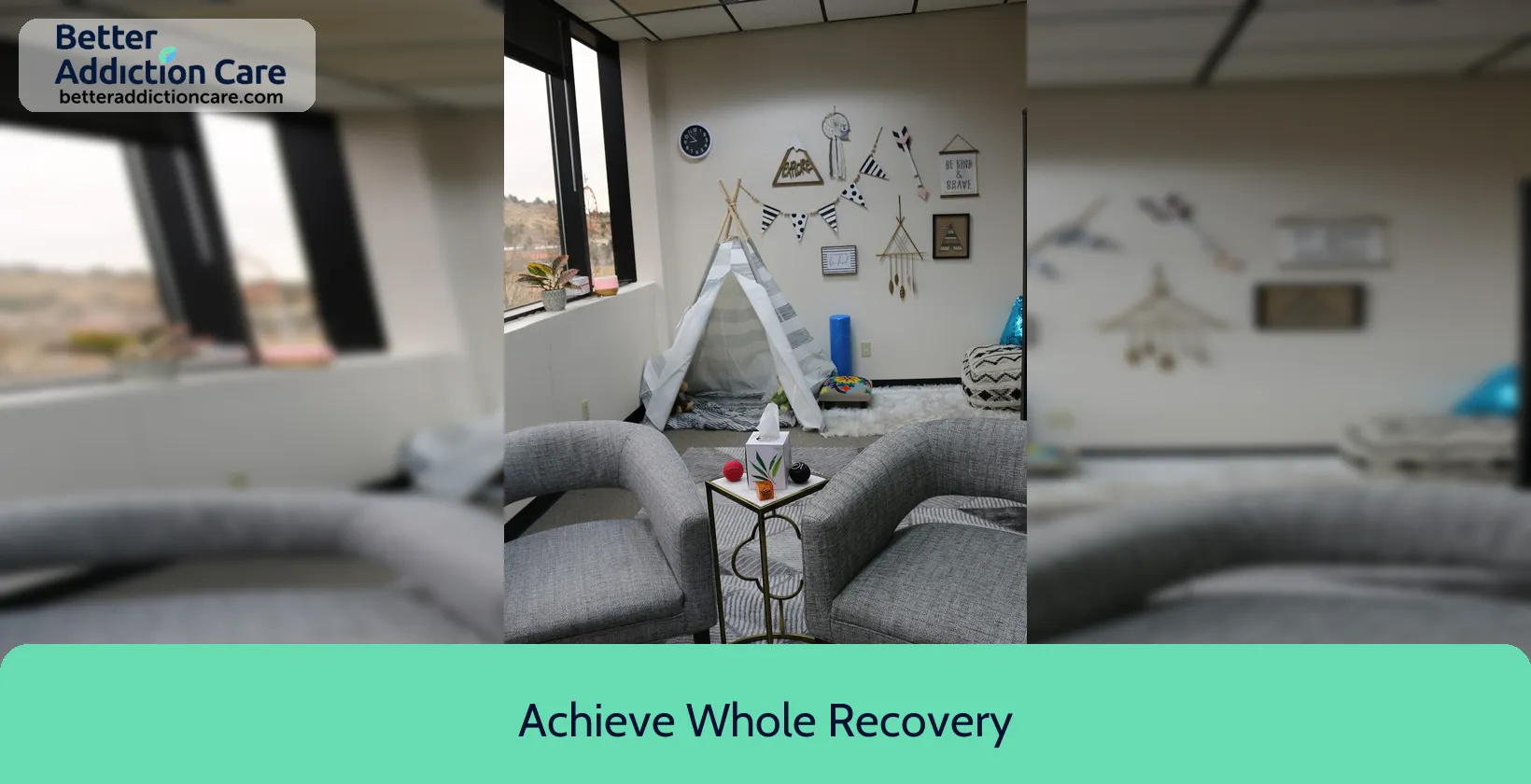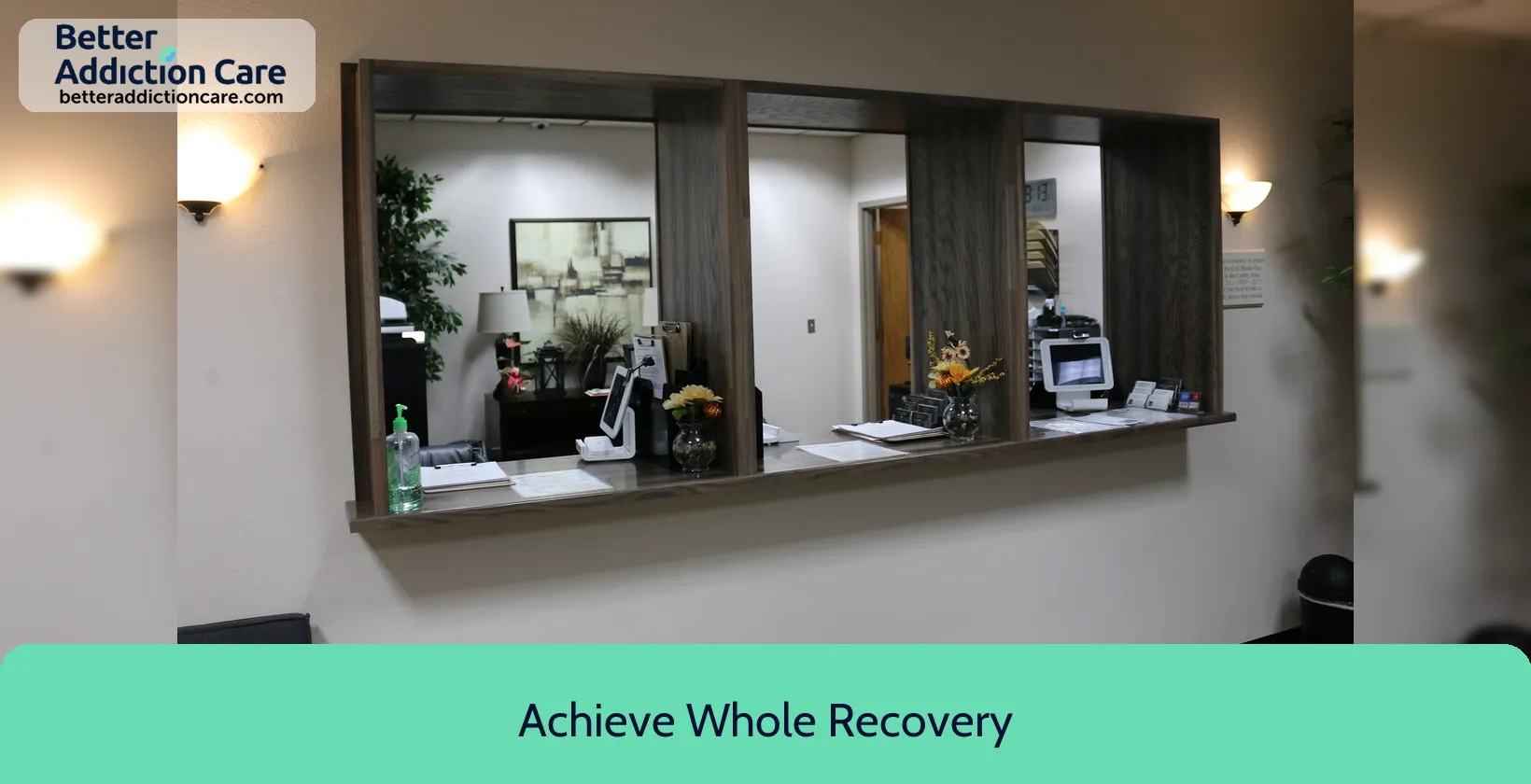Achieve Whole Recovery
Overview
Achieve Whole Recovery is an mental health treatment center that provides outpatient detoxification, for men and women from 18+ years of age. As part of their special programs, Achieve Whole Recovery To help patients achieve sobriety, Achieve Whole Recovery provides treats alcohol detoxification, opioids detoxification, and medication routinely used during detoxification.. Afterward, patients receive individual psychotherapy, couples/family therapy, and group counseling during treatment. Achieve Whole Recovery is located in Colorado Springs, Colorado, providing treatment for people in El Paso County, accepting cash or self-payment, medicaid, and medicare.
Achieve Whole Recovery at a Glance
Payment Options
- Cash or self-payment
- Medicaid
- Medicare
- State-financed health insurance plan other than Medicaid
- Private health insurance
Assessments
- Screening for tobacco use
- Comprehensive mental health assessment
- Comprehensive substance use assessment
- Interim services for clients
- Outreach to persons in the community
Age Groups
- Children/adolescents
- Young adults
- Adults
- Seniors
Ancillary Services
- Court-ordered outpatient treatment
- Diet and exercise counseling
- Family psychoeducation
- Illness management and recovery
- Suicide prevention services
Highlights About Achieve Whole Recovery
7.57/10
With an overall rating of 7.57/10, this facility has following balanced range of services. Alcohol Rehabilitation: 8.00/10, Drug Rehab and Detox: 8.46/10, Insurance and Payments: 6.00/10, Treatment Options: 7.82/10.-
Drug Rehab and Detox 8.46
-
Alcohol Rehabilitation 8.00
-
Treatment Options 7.82
-
Insurance and Payments 6.00
Treatment At Achieve Whole Recovery
Treatment Conditions
- Mental health treatment
- Substance use treatment
- Co-occurring Disorders
Care Levels
- Outpatient
- Outpatient detoxification
- Outpatient methadone/buprenorphine or naltrexone treatment
- Regular outpatient treatment
- Aftercare
Treatment Modalities
- Individual psychotherapy
- Couples/family therapy
- Group counseling
- Cognitive behavioral therapy
- Dialectical behavior therapy
Ancillary Services
Languages
- Sign language services for the deaf and hard of hearing
Additional Services
- Pharmacotherapies administered during treatment
- Naloxone and overdose education
- Breathalyzer or blood alcohol testing
Get Help Now
Common Questions About Achieve Whole Recovery
Contact Information
Other Facilities in Colorado Springs

6.77

7.13

6.71

7.12

7.12

7.57
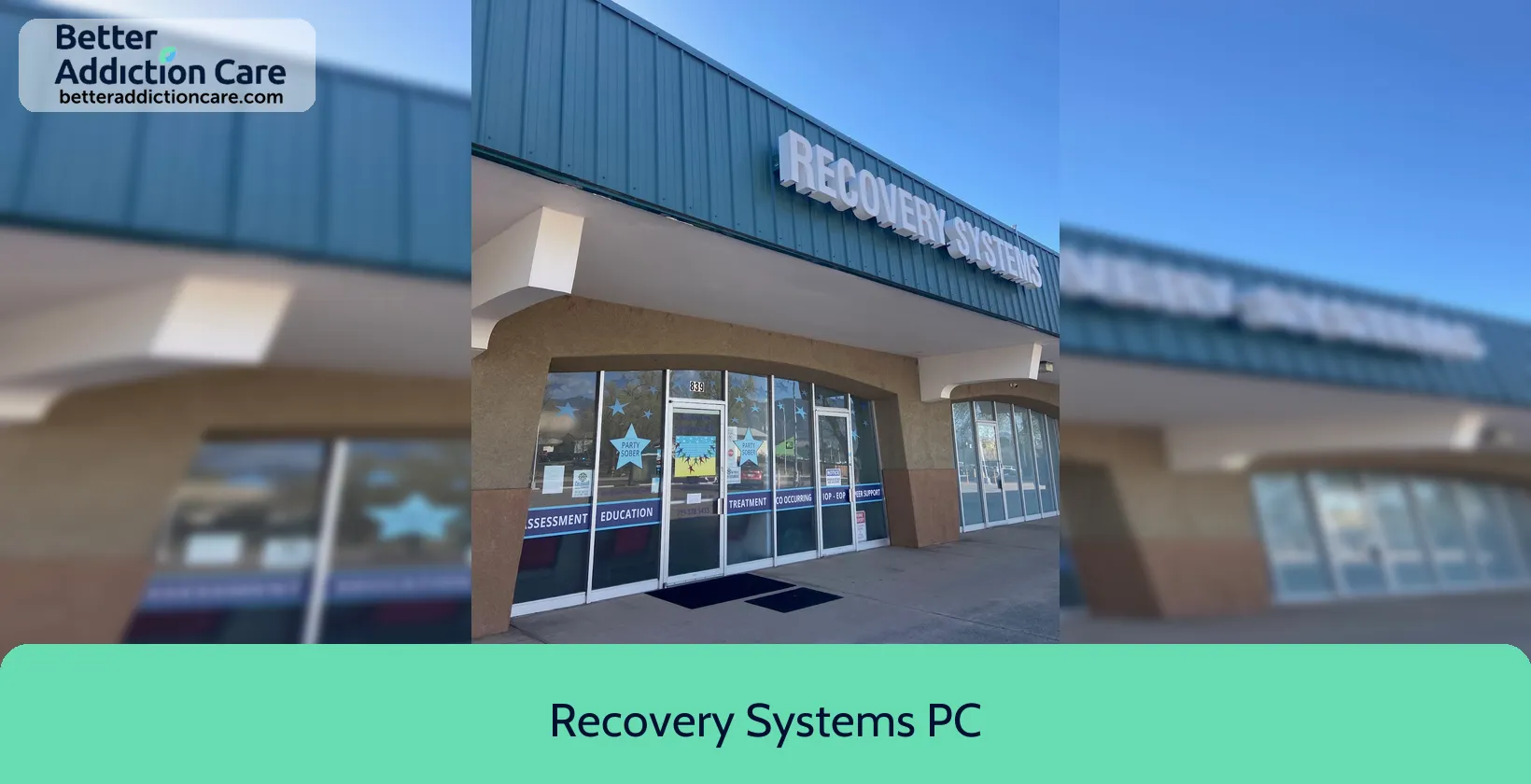
6.97

7.25
Browse rehab centers near Colorado Springs and in other cities across Colorado
DISCLAIMER: The facility name, logo and brand are the property and registered trademarks of BHG Colorado Springs Treatment Center, and are being used for identification and informational purposes only. Use of these names, logos and brands shall not imply endorsement. BetterAddictionCare.com is not affiliated with or sponsored by BHG Colorado Springs Treatment Center.
